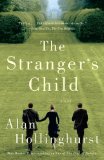Reading Guide Questions

Please be aware that this discussion guide will contain spoilers!
- Much of The Stranger's Child concerns attempts to get at the truth of Cecil Valance. What does the novel as a whole say about our ability to truly know another person? In what ways does it illustrate the limits of our knowing? Do we as readers of the novel know Cecil more accurately than George, Daphne, Dudley - even Sebastian Stokes? What about Paul Bryant?
- What role does keeping secrets play in the The Stranger's Child? Why do so many characters feel compelled to lead secret lives?
- Several characters are said to have had "a bad war," suffering from what would now be described as post traumatic stress disorder. How has the war affected Dudley Valence and Leslie Keeping in particular? In what ways does World War I cast a shadow over the entire novel?
- Before her interview with Sebby Stokes for the memoir he's writing about Cecil, Daphne thinks: "What she felt then; and what she felt now; and what she felt now about what she felt then; it wasn't remotely easy to say" [p. 141]. Later in the novel, frustrated with Paul's interview for his biography of the poet, Daphne muses: "He was asking for memories, too young himself to know that memories were only memories of memories" [p.382]. In what ways does the novel suggest that memory, of both facts and feelings, is an extremely unreliable method of recovering the truth?
- What is suggested by the divergent attitudes expressed in the novel toward Victorianism, especially as it is embodied in Corley House? Why does Dudley detest the house so violently? What is the effect of Mrs. Riley's modernist makeover?
- How do English attitudes towards homosexuality change over the period the novel covers, from 1913 to 2008? Why is it important, in terms of Cecil Valance's biography, that the true nature of his sexuality, and the true recipient of his famous poem "Two Acres," be revealed?
- What other important generational changes in English life does the novel trace?
- The Stranger's Child is, among many other things, a wonderfully comic novel. What are some of its funniest moments and most amusing observations?
- Cecil Valance is a purely fictional character - though he resembles the World War I poet Rupert Brooke - but he inhabits a milieu in the novel that includes real people: literary scholars Jon Stallworthy and Paul Fussell appear at a party, John Betjeman attends a rally to save St. Pancras Station, and Cecil is said to have known Lytton Strachey and other members of the Bloomsbury group. What is the effect of this mixing of real and fictional characters?
- Near the end of the novel, Jennifer Keeping tells Rob that Paul Bryant's story of his father's heroic death in World War II is a fiction, that in fact Paul was a bastard. For Rob, this revelation makes Paul "if anything more intriguing and sympathetic" [p. 422]. Do you agree with Rob - is Paul a sympathetic character? How does Paul's own secret past shed light on his motivations and tactics as a biographer?
- In what ways does A Stranger's Child critique English manners and morals? In what ways might it be said to celebrate them - if at all?
- The novel is filled with remarkable subtleties of perception. After Cecil leaves "Two Acres," Daphne thinks: "Of course he had gone! There was a thinness in the air that told her, in the tone of the morning, the texture of the servants' movements and fragments of talk" [p. 75]. Where else does this kind of finely attuned awareness appear in the novel? What do such descriptions add to the experience of reading of The Stranger's Child?
- The novel opens with George, Daphne, and Cecil reciting Tennyson's poetry on the lawn of "Two Acres" and ends with Rob viewing a video clip of a digitally animated photograph (on the website Poets Alive! Houndvoice.com) that makes it appear as if Tennyson is reading his poetry [p. 424]. What is Hollinghurst suggesting by bookending his novel in this way?
- What does the novel say about how literary reputations are created, preserved, revised?
- Why do you think Hollinghurst ends the novel with Rob's unsuccessful attempt to recover Cecil's letters to Hewitt before they go up in smoke? Is this conclusion satisfying, or appropriately open-ended?
Unless otherwise stated, this discussion guide is reprinted with the permission of Vintage.
Any page references refer to a USA edition of the book, usually the trade paperback version, and may vary in other editions.

 Book Reviewed by:
Book Reviewed by:





